Is time on March 21, in Europe, the European Union announced that the conditional by Bayer for Monsanto deals worth $66 billion, in the end if the marriage is successful, the birth of "fit" will be successful in the world's largest seed and agrochemical company, this also means that the world the lifeblood of agriculture is likely to ever be in the hands of the giant commercial monster. Since May 2016, Bayer offer, the offer has lasted nearly two years, it is because of the "conclusion" super killer, caused the concerns of the countless politicians, farmers and environmentalists.
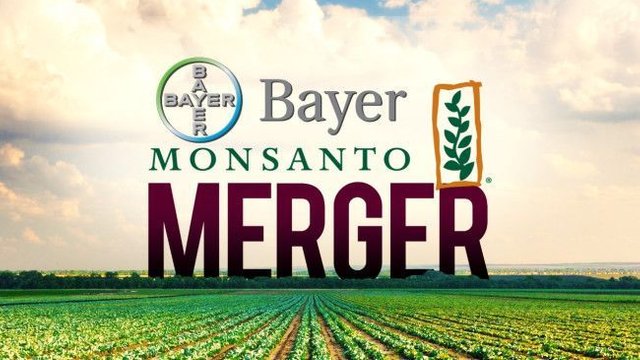
21th, European Union antitrust chief Margrethe Vestager said in the conference, because Monsanto and Bayer concessions, more than $7.4 billion worth of remedial measures are put forward, to eliminate the eu fear of undermining the market competition and stop innovation, therefore the eu has approved the purchase plan.
So far, Byer has received more than 30 more than half of regulators for approval, including the Brazilian and Chinese regulatory approval. Werner, chief executive of Bayer Baumann said: "approved by the European Union is one of the most important is we get success, is also a major milestone event. We are working with Monsanto to help farmers around the world grow more nutritious food in a sustainable way, which is a good thing for consumers and environmental protection. "But what if, as Werner Baumann said, it is so good? And both with what "power" to resist their joint efforts are so, what is that they even cut meat, cut off its arms, also want to break through barriers to come together?
The appreciation among the leaders
Bayer is a german-based global group with more than 100, 000 employees and more than 350 branches. The 150 years of history of the enterprise for many years formed to healthcare, crop science, materials science (has separate listing) respectively in three aspects: the operation management mode, and famous for its innovation.

"Century medicine" Aspirin is one of its major inventions, in 1897, Bayer start acetyl salicylic acid synthesis and research of medical USES, in 1899, Bayer Aspirin as the trademark, the drug sales to all over the world. In the next hundred years, until today, aspirin is still widely used in antipyretic, pain and anti-inflammatory, and even become the standard of evaluation and comparison to other drug preparations, become one of the medical history of the three classical drugs.
In medicine, the devil and the angel are in the same room. Another invention of Bayer, Heroin, the drug named "hero" in the name of that allows everyone to its guts, is found in the aspirin that same year, also for synthesis of aspirin same chemist Felix Hoffmann again synthetic diacetylmorphine. During the period between 1898 and 1910, Bayer sold heroin as a prescription cough medicine, and the result was almost a death.
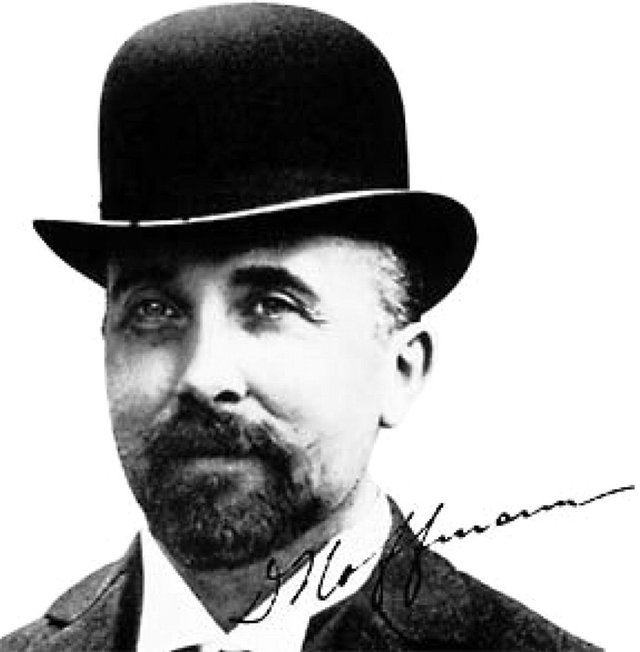
Picture | and Felix Hoffmann, who also invented Aspirin and Heroin.
Successively in 2014, stripped of the traditional chemistry and materials industry, the company will focus on the pharmaceutical and related to seed agriculture chemistry, become pure life science companies, and the agricultural chemical and seed market as important competitive point in the future. Monsanto, the century-old biotech company, is more controversial. The American multinational, set up in 1901, also started out as a chemical, but with a bit more of a "can-do" attitude than Bayer's "innovation". The keen to "eat crabs" of the company in order to produce invented the insecticide DDT, defoliant agent orange, after the controversial products such as invention in 1970 of the herbicide glyphosate, and commercial market. Then, in 1987 the first genetically modified (gm) crops in the field, and gradually in corn, soybean, cotton, and other important economic crops of genetically modified firmly hold on the market, as the largest seed company.
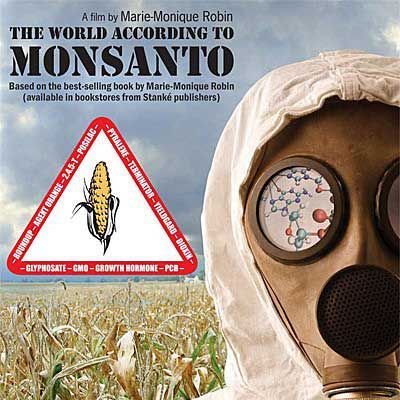
Picture |"The world in the eyes of Monsanto" depicts the various evils of Monsanto Company.
Glyphosate is a widespread organophosphorus herbicide used to kill weeds, especially the annual broad-leaved weeds that compete with crops, invented by Monsanto in 1970. After Monsanto introduced gm crops resistant to glyphosate, farmers quickly accepted and tested them extensively. A 2013 toxicology review at the German federal institute for risk assessment found that there was a risk associated with glyphosate preparation and multiple cancers. In March 2015, the world health organization's international agency for cancer research, based on epidemiological studies, animal experiments, and in vitro studies, classified glyphosate as a "human carcinogen" (class 2A). In November 2015, the European food safety authority announced the glyphosate's latest assessment report, the conclusion is "substance is not may have a genetic toxicity (that is, the damage of DNA) or constitutes a threat to human cancer".
Such radical action often takes a heavy toll. Out of debt, the business aspects of reasons, in 1997-2000, Monsanto has experienced many times is the demolition of a lot of "bone", in the whole world agricultural markets, but also because of the patent, genetically modified (gm) crops and environmental problems, facing many resistance, lawsuit.
The devil between contracting parties
Currently, Bayer's crop science ranks second in the world in plant protection and seventh in seed business. At the same time Monsanto owns more than 1,700 patents and holds 90% of the world's patents for genetically modified seeds. The term "the big devil" is no exaggeration. For Monsanto, the combination of the two can provide sufficient funding support for its research and development innovation, and for Bayer, the acquisition will be its a ticket into the U.S. market, the combination of the two will be born in the world's largest seed and agrochemical company, forecast will be able to account for more than 25% of the global market share, cooperate, seems intent to dominate the world agricultural seeds and agrochemical market, yen, does that mean after the world economy will also be in the palm of the beast? No one, except Bayer and Monsanto, would be willing to do such a thing, and would not allow such a thing to happen. If the merger is to be achieved, Bayer and Monsanto can only break their arms and cut off the meat. In other words, they will use their own big meal to raise their opponents and form checks and balances.
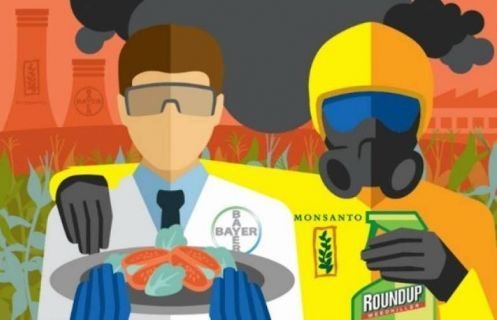
This time, in the face of the review, Bayer and Monsanto active back, $7.4 billion worth of compensation condition: stripping Bayer part of the business, including global business field seeds, such as rapeseed, cotton and soybean (individual exceptions to the region only), research and development platform of hybrid wheat, global vegetable seed business, global business of ammonium phosphate and European part is mainly used in industrial field of glyphosate herbicide business; Monsanto, for its part, spun off NemaStrike, its global nematode agent. The approved conditions also require Bayer to sell three research projects in the field of non-selective herbicides, and to license Bayer's digital agricultural products to third parties. In order to dispel the concerns of the European Union, Bayer suggested by one of its rivals, the German company BASF acquisition of the project, and the European Union not to specify its stripping business buyers.
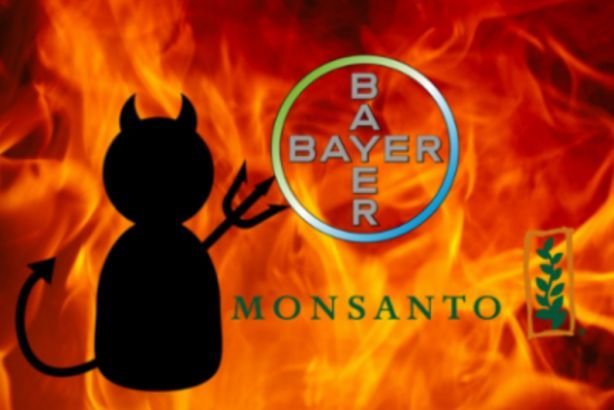
"We need a good competition relationship between industry, to ensure that farmers can choose seeds and pesticides at a reasonable price," European Union antitrust chief Margrethe Vestager said that if there is no remedy, the acquisition will significantly reduce competition in the market and hamper innovation. The concessions of Bayer and Monsanto help ensure the "ecological" stability and checks and balances in the world's agricultural markets.
Reshaping the world's agricultural markets.
Many are ungrateful to Vestager's explanation, and some environmentalists even consider it a "covenant from hell". Including those from Hollywood actor Mark Ruffalo environmentalists, such as with twitter, email, mail to her expressed dissatisfaction, they think that the merger is likely to human health, agriculture and environment caused immeasurable harm. "These concerns have gone beyond the competition policy that m&a itself needs to consider," Vestager said.Many are ungrateful to Vestager's explanation, and some environmentalists even consider it a "covenant from hell". Including those from Hollywood actor Mark Ruffalo environmentalists, such as with Twitter, Email, mail to her expressed dissatisfaction, they think that the merger is likely to human health, agriculture and environment caused immeasurable harm. "These concerns have gone beyond the competition policy that m&a itself needs to consider," Vestager said.
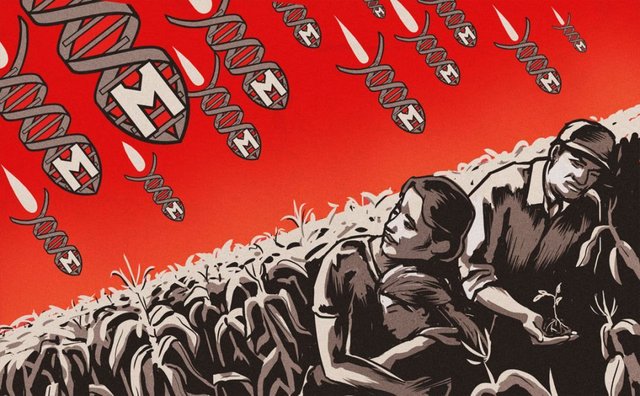
And cut meat and benefits, and also is the common method in these giants merger case, in a recent reshape global agricultural market three big transactions, in order to reassure the eu, in Dupont and Dow mergers and acquisitions, Dupont has to sell its most of the research and development of global business, and make them become the merger was the world's largest seed and pesticide company. It also had to shed its overlapping industries when it bought the world's largest pesticide company, Syngenta.
But concessions to the European Union are not the end of the deal, and both Bayer and Monsanto may need to make more concessions to placate America's fears of a merger. "Rather than stop trading as the timing problem," an analyst Ulrich from Hamburg Huwald think, for the U.S. department of justice review, he think is more suitable for said "political delay".

Bayer said the deal still needs to meet the usual delivery conditions, including getting the necessary regulatory approval. Both Bayer and Monsanto are working closely with regulators, including the us department of justice, to close the deal in the second quarter of 2018. Opponents are still hopeful, "the battlefield has shifted and the United States still has the opportunity to terminate the merger," said Nick Flynn, a legal adviser from Avaaz, a nongovernmental organization. For gm, the United States and the European Union are used to holding the opposite attitude, and we'll see what happens in the future.
-End-reference:
Reprinted from: https://www.sohu.com/a/226278418_354973